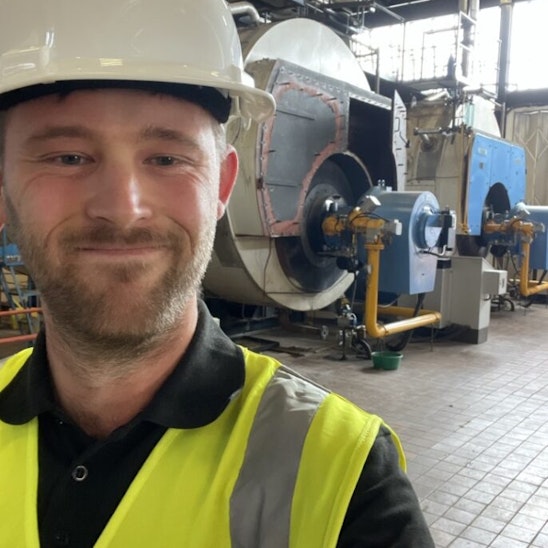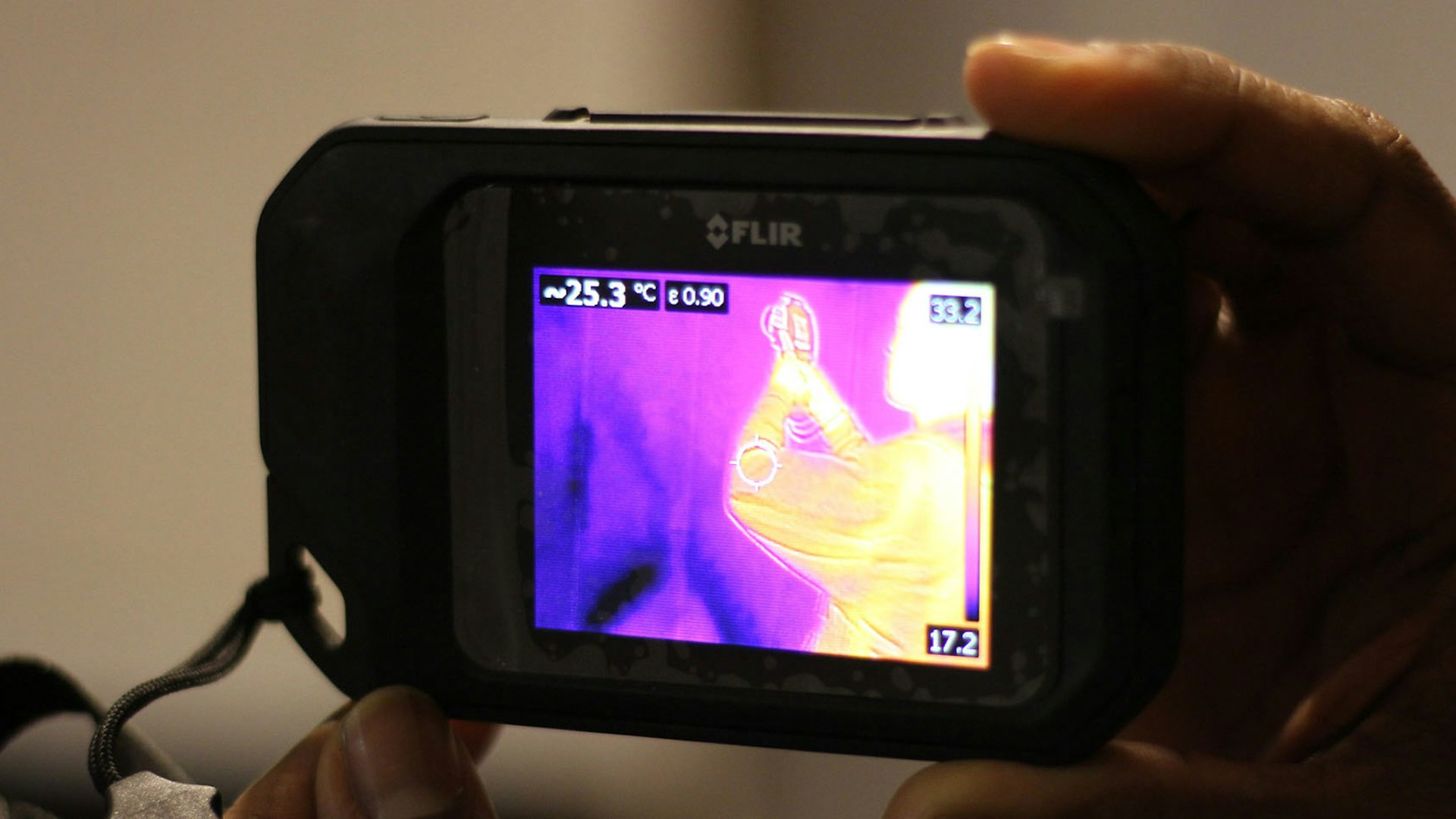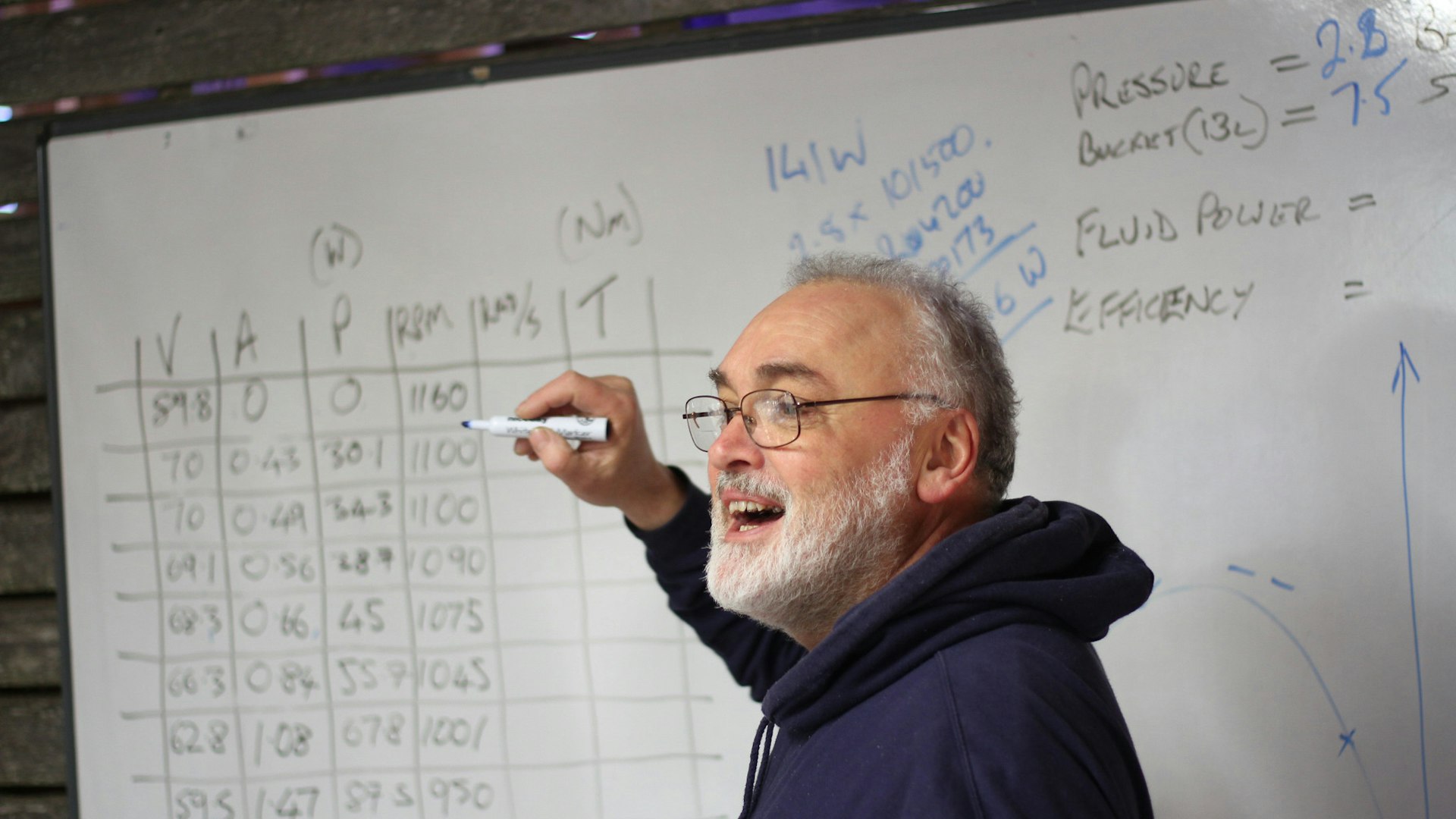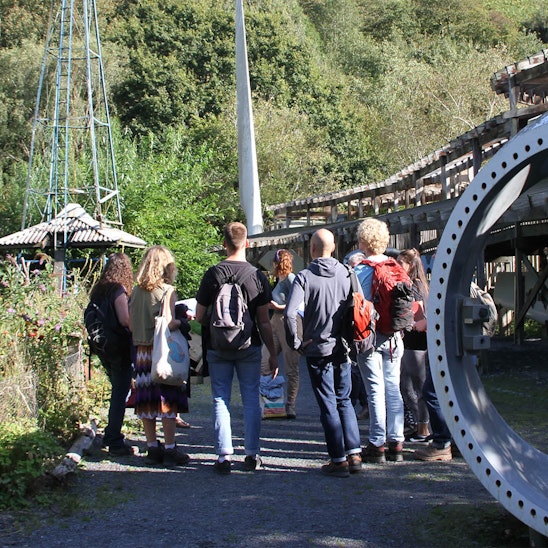Core modules
Introduction to Sustainability and Adaptation
This introductory 15-credit core module starts in September and must be taken at the beginning of your course, no matter which route you take through your studies.
In this module, we will establish the overarching concepts and theoretical grounding in sustainability, resilience and transformational adaptation, contextualise the view of current environmental changes, and explore the interconnectedness of the factors involved with these changes.
There will be an in-depth look at the wider implications of transformational adaptation on social structures and sustainability issues, including land use, trade, resource management, energy provision, governance, health and economic systems through a critical exploration of the primary considerations related to sustainability and environmental change.
The module is followed either by our ‘Sustainability and Adaptation Concepts in Practice’ module or ‘Introduction to Sustainability in Energy Provision and Demand Management’ module starting in November, depending on your programme.
This is a 15 credit module.
Read more about this module for courses awarded by the University of East London:
EV7132 – Introduction to Sustainability and Adaptation (After September 2022)
Read more about this module for courses awarded by Liverpool John Moores University:
7522CATSCI – Introduction to Sustainability and Adaptation - LJMU
What’s it like to study at CAT? Read more about the teaching and learning experience.
This introductory 15-credit core module starts in November and must be taken following the ‘Introduction to Sustainability and Adaptation’ module which starts in September, at the very beginning of your course, no matter which route you take through your studies.
In this module, you will contextualise energy demand and the technological, environmental and societal benefits and limitations of future energy provision. It will be taught through a variety of lectures, seminars, practical workshops, presentations, demonstrations and tutorials.
You will also gain a critical understanding of energy demand monitoring and analysis and many key principles of the sustainability sector, including life cycle analysis, environmental impact assessment and energy returned on energy invested.
This is a 15 credit module.
Read more about this module for courses awarded by the University of East London:
EV7133 – Introduction to Sustainable Energy Provision and Demand Management (After September 2022)
What’s it like to study at CAT? Read more about the teaching and learning experience.
The aim of this module is to give students a deeper understanding of the principles and consequences of energy flows and mass flows in buildings, in terms of the materials used, the building’s orientation and the local climatic conditions.
You will gain a sound appreciation of how energy transfers in buildings can be manually calculated, modelled and simulated in computer modelling suites, and how this is vital to help optimise design for energy efficiency.
You will be able to further hone a systematic, holistic, multidisciplinary and analytical approach to the critical appraisal of passive and energy efficiency design (including Passivhaus designs), heat and moisture flows in new builds and renovations, with respect to the demands of climate change adaptation and the principles of sustainability.
You will study a range of topics, including retrofit techniques and challenges, thermal bridges, thermal mass in buildings, post-occupancy evaluation of building performance, airtightness, ventilation and cooling, solar gains, movement of moisture in building fabric and computer simulation techniques for understanding thermal and hygroscopic building performances.
This is a 15 credit module. It is a recommended module for Green Building students, dependent on experience and prior knowledge.
Read more about this module for courses awarded by the University of East London:
EV7134 – Low and Zero Carbon Buildings (After September 2022)
What’s it like to study at CAT? Read more about the teaching and learning experience.
In this module, students will be analysing the advantages and limitations of existing electrical provision systems in a local, national and global context, along with the future electrical demand in short, medium and long-term contexts.
You will gain an understanding of analysis and scenario development of the functions and limitations of sustainable electricity provision systems and the relevance of local, national and global energy provision.
Main topics of study will include understanding key technologies (wind, PV, hydro, etc.), electrical energy storage systems, the needs, challenges and constraints of grid connection and the futuring of electrical energy provision and demand in selected nations.
This is a 15 credit module.
Read more about this module for courses awarded by the University of East London:
EV7138 – Sustainable Electricity (After September 2022)
What’s it like to study at CAT? Read more about the teaching and learning experience.
You will analyse the advantages and limitations of existing thermal provision systems in a local, national and global context in this module. Through synthesising and developing scenarios of future thermal energy provision you will look at energy demand in short, medium and long-term contexts.
You will also gain an understanding of existing thermal systems (oil, gas, biomass, air-conditioning, etc.) and emerging thermal systems (heat pumps, hydrogen, geothermal, district heating, thermal storage, etc.), including their functions, benefits, and limitations.
The module will also allow you to demonstrate a critical understanding of the principles of thermal provision in buildings, including the benefits and limitations of transforming thermal energy provision systems.
This is a 15 credit module.
Read more about this module for courses awarded by the University of East London:
EV7139 – Sustainable Heating and Cooling (After September 2022)
What’s it like to study at CAT? Read more about the teaching and learning experience.
This module, ‘Applied Research Design’, will support students in building knowledge, skills and literacy in research design and methodologies in relation to interventions, projects and applied research. It will also support students in developing a proposal for following either a conventional dissertation route or incorporating a design element within the dissertation.
The module will typically include a study visit on-site at CAT, or equivalent by distance, as scheduled in the academic calendar. It will also deliver relevant research skills for students during their final year of taught modules through attending and watching research seminars.
The Applied Research Design module will include several opportunities for enquiry and problem-based group projects in the lead up to the dissertation module.
All students will be required to carry out a teamwork-based project where they will gain experience in the research methods applied to their discipline and their use in real-world settings, through current live and applied projects.
This is a 15 credit module.
Read more about this module for courses awarded by the University of East London:
EV7125 – Applied Research Design - UEL (After September 2022)
Read more about the dissertation module for courses awarded by Liverpool John Moores University
7521CATSCI - Applied Research Design - LJMU
What’s it like to study at CAT? Read more about the teaching and learning experience.
The dissertation involves designing, investigating, and presenting an extended and independently conceived piece of research on a topic of your choosing within a field of study relevant to your course.
During the module you will demonstrate the ability to explore a relevant research topic in-depth, with appropriate research methodology, displaying creativity and skills in critical analysis. Students will submit a dissertation (18,000 words maximum) at the end of the module. For students interested in focusing on sustainable building or design, part of the dissertation could also involve a design element.
Before beginning the module, students will be required to have gained approval for a Research Proposal (RP) on a subject from within the study area of their Programme, in consultation with one or more members of the teaching team and as a result of group discussions around initial ideas. The RP will be developed during the core ‘Applied Research Design’ module, which will cover research philosophy, approaches, strategy, design methods and analysis techniques.
Teaching and learning take place through tutorial-supported work on the preparation of this major piece of academic discourse. After an initial seminar group meeting involving other students, tuition is mainly on an individual basis.
This is a 60 credit module.
Read more about this module for courses awarded by the University of East London:
EV7101 – Dissertation Module UEL (After September 2022)
Read more about the dissertation module for courses awarded by Liverpool John Moores University
7520CATSCI - Dissertation LJMU
What’s it like to study at CAT? Read more about the teaching and learning experience.
Optional modules
Introduction to Politics and Economics of the Environment
This module introduces students to roles of power, policy, agency and economic structures that produce crises in the context of the environment, and our responses to these crises.
Through a range of topics including political and economic tools for change, environmental justice and inequalities and environment and systems change across global, national, and local scale, you will study the theoretical underpinnings to understanding the importance of political and economic systems to transformational change.
The module takes an interdisciplinary, critical approach to examine how unequal power relations have been constructed, and their environmental and societal consequences. It will consider the societal consequences of unsustainable governance of nature and the built environment.
We will also draw on current and historic social and environmental debates and events to illustrate the application of a range of critical analytical approaches, such as political ecology, discourse, global political economics, and policy studies.
This is a 15 credit module.
Read more about this module for courses awarded by the University of East London:
EV7131 – Introduction to Politics and Economics of Environment (After September 2022)
Read more about this module for courses awarded by Liverpool John Moores University:
7502CATSCI - Introduction to Politics and Economics of the Environment - LJMU
What’s it like to study at CAT? Read more about the teaching and learning experience.
This module will introduce students to the complexities of cities and communities and their local and global interconnections. You will examine how these conditions interact with the task to transform, reclaim, and reproduce the city and built environment amid global environmental change
The module will develop your knowledge of current research and discourse concerning adaptation planning and sustainability of cities and communities, and their place in current and future environmental contexts.
You will gain a thorough understanding of key elements, including infrastructures, maintenance issues, energy budgets, material flows, waste disposal, transportation and the social dynamics that underlie the development and management of communities and cities.
Following a critical assessment of the complex factors that influence the provision of sustainability and adaptation planning within urban and community focused environments, you will be able to recognise and rationalise the prospects for innovative research and practice for regeneration in the built environment.
This is a 15 credit module.
Read more about this module for courses awarded by the University of East London:
EV7105 – Cities and Communities UEL
Read more about this module for courses awarded by Liverpool John Moores University:
7504CATSCI - Cities and Communities - LJMU
What’s it like to study at CAT? Read more about the teaching and learning experience.
In this module you will learn about the complex nature of the interrelationships that exist between occupant comfort, energy flows in buildings and energy efficient building design. By exploring this through theory and applying this in practice through expert-led practical workshops, you will be able to define how energy flows and energy efficient building design relates to adaptation and sustainability in the built environment.
You will develop a systematic, holistic, multidisciplinary and analytical approach to the critical appraisal of energy-efficient design, heat flows and provision of thermal comfort with respect to the demands of climate change adaptation and the principles of sustainability.
You will cover a range of topics, including thermal comfort, thermal mass, heat transfers through building fabric and determination of U values, ventilation, sunlight and solar gain, passive cooling, climate influences on design and future climate change considerations, the impact of moisture on building fabric, quantification of building performance, embodied energy and carbon of building materials and the societal benefits of energy efficient buildings.
This is a 15 credit module. It is a recommended module for both Green Building and Sustainability in Energy Provision and Demand Management students, dependent on experience and prior knowledge.
Read more about this module for courses awarded by the University of East London:
EV7128 – Energy Flows in Buildings (After September 2022)
What’s it like to study at CAT? Read more about the teaching and learning experience.
In this module, we will analyse existing energy-related CO2 emissions in a global context and form a critical appreciation of Minority World and Majority World energy demand, provision and resource availability, and the interconnectedness between these systems.
Through lectures, seminars, practical workshops, presentations, demonstrations, discussions and tutorials you will be studying the environmental and social impacts of energy provision, as experienced across international and interregional boundaries. This will include analysing and developing scenarios of future global energy provision and demand in short, medium and long-term contexts.
You will also consider justice, ethics and responsibilities in global energy provision, including the role of states, corporations and the third sector in energy provision transitions.
This is a 15 credit module.
Read more about this module for courses awarded by the University of East London:
EV7130 - Transformational International Energy Management (after September 2024)
Read more about this module for courses awarded by Liverpool John Moores University:
7524CATSCI - Transformational International Energy Management - LJMU
What’s it like to study at CAT? Read more about the teaching and learning experience.













